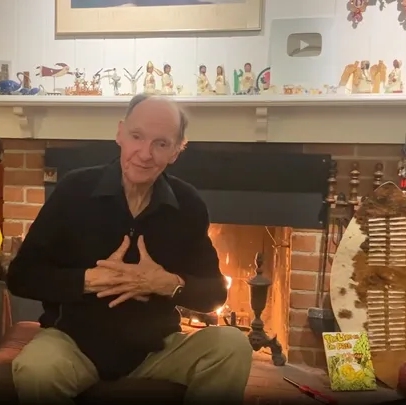
Use of this website constitutes acceptance of the Privacy Policy and User Agreement. Copyright © 2020 Kalimba Magic. All Rights Reserved.
Home > Info > How To Play > How to Play the 8-Note Kalimba
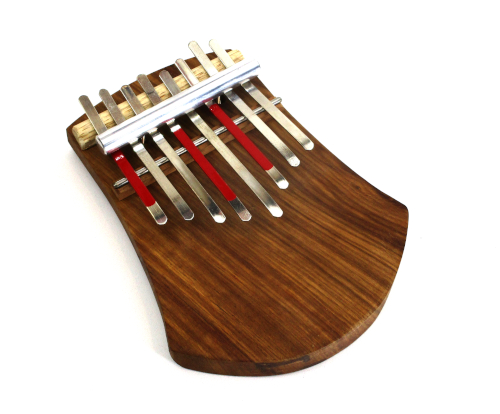
Are you a beginner who wants to play western music? This kalimba is a great place to start, and works well for kids as young as 6 years old, but is also a reasonable place for an adult to start. There are also alternative tunings from around the world available for the 8-Note.

The main reason the 8-Note Kalimba is great to learn on is that it shares all of the layout features with the bigger Alto and Treble Kalimbas, but it only has a few notes – just enough for you to get the principles without being overwhelmed. Everything you learn here can be fully transferred to the bigger Alto or Treble kalimbas. With fewer tines, this kalimba tilts the odds in favor of success. It is sized for young hands, but I actually have a few in my arsenal of instruments. I also have 25 of these set aside for working with children and adults when I give a large kalimba presentation. So, while they are basic instruments that are easy to learn on, they are still good instruments and anyone can play one.
Here are some videos to illustrate that you can do real music on the 8-Note kalimba:
Demo of Hugh Tracey 8-Note Kalimba.
Feelin Groovy on a One-Handed Kalimba.
Michelle Erfurt: Somewhere Over the Rainbow on the 8-Note Kalimba
 This tablature-based book is a great introduction to the 8-Note Kalimba for kids.The book contains a number of well-known children’s songs, but it also has popular songs such as Over the Rainbow, as well as classical, Latin, and African tunes. Good for kids 6 and up.Purchase Book.
This tablature-based book is a great introduction to the 8-Note Kalimba for kids.The book contains a number of well-known children’s songs, but it also has popular songs such as Over the Rainbow, as well as classical, Latin, and African tunes. Good for kids 6 and up.Purchase Book.
The “Best Ever 8-Note Book” is also available as a downwload.
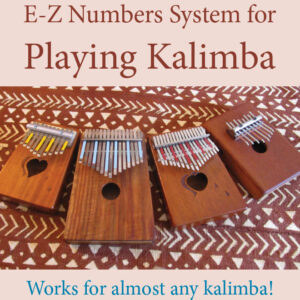 This numbers-based book has a lot of material that can be used on the 8-Note kalimba. Purchase Download
This numbers-based book has a lot of material that can be used on the 8-Note kalimba. Purchase Download
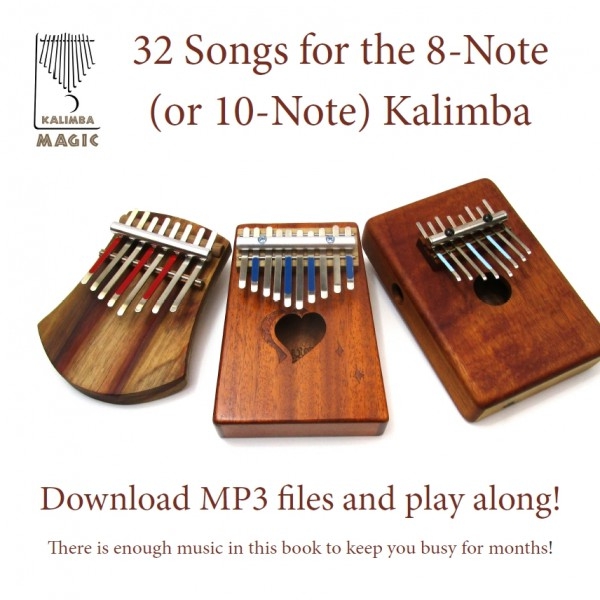 Tablature and sound recordings for 32 songs on the 8-Note kalimba.But there is a catch – in order to play these songs, you need to retune your 7th tine, the B, to a Bb, which shifts the key to F, which opens up a whole new world of music. Really! African, classical, folk, peace, patriotic, Christmas, African-American Spirituals, reggae, ETC! This is the next step for people who want more than the other books have to offer. Purchase Download
Tablature and sound recordings for 32 songs on the 8-Note kalimba.But there is a catch – in order to play these songs, you need to retune your 7th tine, the B, to a Bb, which shifts the key to F, which opens up a whole new world of music. Really! African, classical, folk, peace, patriotic, Christmas, African-American Spirituals, reggae, ETC! This is the next step for people who want more than the other books have to offer. Purchase Download
These articles and tips on playing the 8-note kalimba are taken from the archives and are not yet part of the new web site. As such, many of the links you will find in these pages do not work, yet their value will still be self-evident.
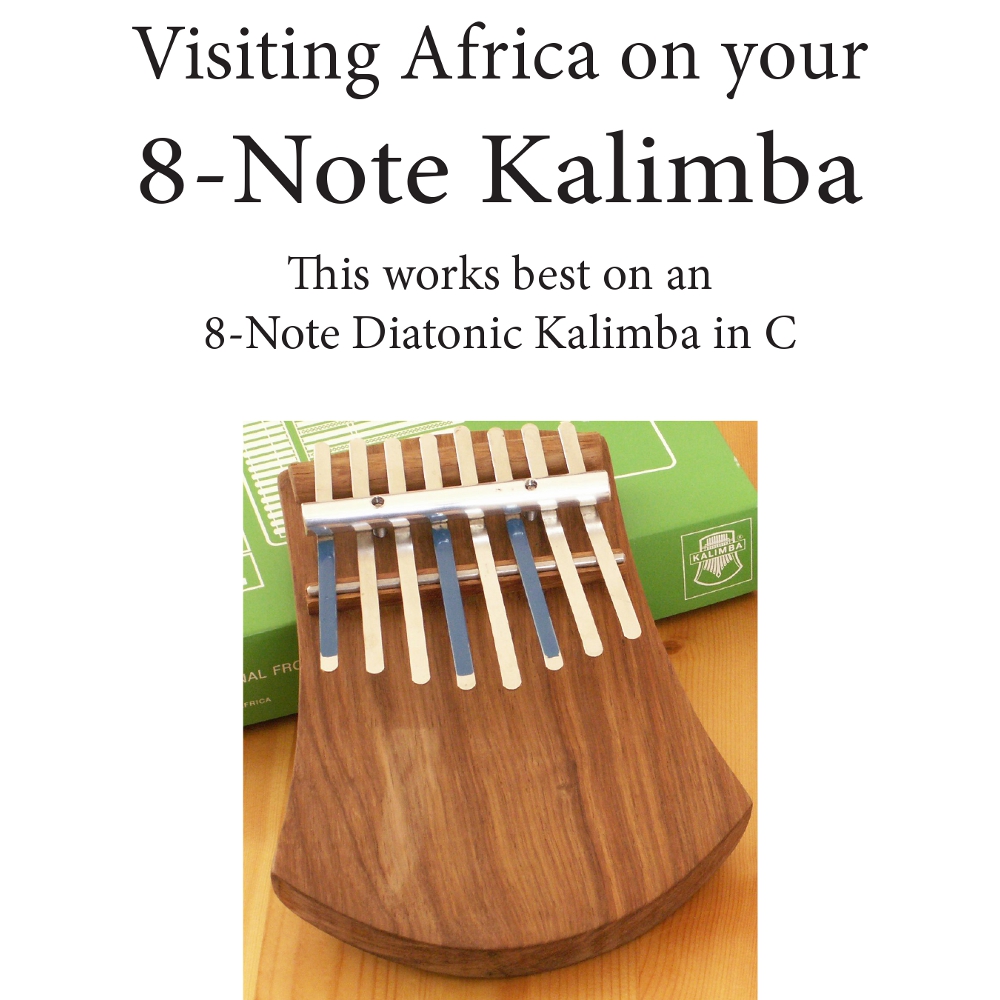
The standard 8-Note Kalimba is not a traditional African tuning, but there is still a bunch of African music you can play on the 8-Note Kalimba in C. This 12 page PDF with 8-Note Kalimba Tablature and live links to sound recordings to show you exactly how the music is played. Purchase Download
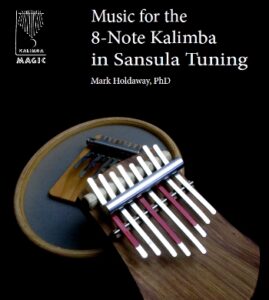 Each different tuning is like a different landscape to explore. This instructional download is for the same tuning as the Sansula’s standard tuning – but put onto an 8-Note kalimba. This transforms the vanilla 8-Note into an exotic and mysterious vacation to an internal imaginary land that reminds me of “The X-Files”.
Each different tuning is like a different landscape to explore. This instructional download is for the same tuning as the Sansula’s standard tuning – but put onto an 8-Note kalimba. This transforms the vanilla 8-Note into an exotic and mysterious vacation to an internal imaginary land that reminds me of “The X-Files”.
This 28-page, 20-song PDF is full of the cool musical ideas you can play around with on this wonderful 8-note kalimba tuning. The simpler 8-Note tablature is clear and easy to read.
Take Your 8-Note (or 10-Note) Kalimba Playing to the Next Level
Free Blank Tablature for Various Kalimbas – Updated and Expanded
 These 8-Note Kalimbas are tuned to the key of D by default, rather than the key of C. Yet as the note arrangement is the same as the other 8-Note Kalimbas, just shifted up higher, all of the books will work fine for this kalimba. Purchase Kalimba
These 8-Note Kalimbas are tuned to the key of D by default, rather than the key of C. Yet as the note arrangement is the same as the other 8-Note Kalimbas, just shifted up higher, all of the books will work fine for this kalimba. Purchase Kalimba
 The elegant design by Hugh Tracey echoes the shape of the traditional 8-Note instruments from the heart of Africa, The painted tines assist you in interfacing left and right side, transferring music from the tablature to the kalimba, and connecting this instrument with the lower eight notes of the Alto or Bb Treble Kalimbas when it is time to advance to a more capable kalimba. Purchase Kalimba
The elegant design by Hugh Tracey echoes the shape of the traditional 8-Note instruments from the heart of Africa, The painted tines assist you in interfacing left and right side, transferring music from the tablature to the kalimba, and connecting this instrument with the lower eight notes of the Alto or Bb Treble Kalimbas when it is time to advance to a more capable kalimba. Purchase Kalimba
 This is the only 8-Note Kalimba with an electronic pickup. You can plug into an amplifier with a quarter inch jack. Purchase Kalimba
This is the only 8-Note Kalimba with an electronic pickup. You can plug into an amplifier with a quarter inch jack. Purchase Kalimba
 Most 8-Note Kalimbas have a standard tuning of the C major scale (the Goshen Box 8-Note Kalimba has the same basic note layout but is tuned to D major instead). The books assume you have this tuning. While this tuning is totally logical, there are actually a lot of other tunings that you can do wonderful things with.
Most 8-Note Kalimbas have a standard tuning of the C major scale (the Goshen Box 8-Note Kalimba has the same basic note layout but is tuned to D major instead). The books assume you have this tuning. While this tuning is totally logical, there are actually a lot of other tunings that you can do wonderful things with.
 The Goshen 8-Note Box Kalimba has the same basic tuning, except every note is a whole step higher, putting it in D major. You can still use the same 8-Note books, but if you listen to the CD, you cannot play along as it is in a different key.Read more
The Goshen 8-Note Box Kalimba has the same basic tuning, except every note is a whole step higher, putting it in D major. You can still use the same 8-Note books, but if you listen to the CD, you cannot play along as it is in a different key.Read more

If you compare this tuning chart to the C major tuning, you will notice that the letters are all the same, except that B has turned into Bb (B flat) – that is, you pull it out slightly to make it a bit longer and lower. This action will change it from being the7th of the scale and make it be the 4th… counting down, F is now the root, and the low note (and the top note) on this kalimba, C, is now the 5th.
Why would you want to do this? It turns out that there are a whole bunch of songs you can play on an 8-note kalimba set up like this, and they are not possible in the standard setup. And the best news? This is the smallest possible retuning you can do, and you get a huge result from it! We have a 32 Song download for the 8-Note in this tuning; click the link to purchase the download.
Read more
 After you pull out your B tine to make it a Bb, you might also consider pulling out the A tine and E tine to Ab and Eb. Why would you do this? These changes will give you a minor 3rd, a minor 6th, and a minor 7th – all the changes you need to accomplish to form the C natural minor tuning. This tuning will be more melancholy, more moody, more mystical. In other words, it will play totally different music, and it is still a very simple retuning, and it is easy to go back to the standard C major. Try it, I think you’ll like it.
After you pull out your B tine to make it a Bb, you might also consider pulling out the A tine and E tine to Ab and Eb. Why would you do this? These changes will give you a minor 3rd, a minor 6th, and a minor 7th – all the changes you need to accomplish to form the C natural minor tuning. This tuning will be more melancholy, more moody, more mystical. In other words, it will play totally different music, and it is still a very simple retuning, and it is easy to go back to the standard C major. Try it, I think you’ll like it.
 By now you are getting the idea: small changes in the notes you have on your kalimba can make profound changes in the music that comes out of it. The important change in this Middle Eastern tuning is the G going to a G#. Tuning the low C down to a B, and the high C up to an E, are less important changes that serve to reinforce the E as the new root. This tuning will play very cool Middle Eastern sounding music.
By now you are getting the idea: small changes in the notes you have on your kalimba can make profound changes in the music that comes out of it. The important change in this Middle Eastern tuning is the G going to a G#. Tuning the low C down to a B, and the high C up to an E, are less important changes that serve to reinforce the E as the new root. This tuning will play very cool Middle Eastern sounding music.
 This is perhaps the most important alternative tuning – it reproduces the African Tuned Karimba, also called the Student Karimba. It is thought to be the original tuning of the African Mbira over 1000 years ago, and is thought to be the tuning that Father Do Santos saw when he first wrote about the kalimba in 1586 in present-day Mozambique. Also, you can find a lot of instructional material on this tuning in the Student Karimba section by clicking below.Read more
This is perhaps the most important alternative tuning – it reproduces the African Tuned Karimba, also called the Student Karimba. It is thought to be the original tuning of the African Mbira over 1000 years ago, and is thought to be the tuning that Father Do Santos saw when he first wrote about the kalimba in 1586 in present-day Mozambique. Also, you can find a lot of instructional material on this tuning in the Student Karimba section by clicking below.Read more
 The Sansula is one of the coolest kalimbas in the world, and costs a lot of money too – but the good news is that you can put the Sansula tuning on your inexpensive 8-Note Kalimba. This tuning is an A minor derived from the Ake Bono scale.
The Sansula is one of the coolest kalimbas in the world, and costs a lot of money too – but the good news is that you can put the Sansula tuning on your inexpensive 8-Note Kalimba. This tuning is an A minor derived from the Ake Bono scale.
 The Sansula tuning is based on the Japanese Ake Bono scale, but it skips a note. Here we have reproduced the C minor Ake Bono scale, without skipping any notes. This is a great scale, and playing it can transport you to another continent.
The Sansula tuning is based on the Japanese Ake Bono scale, but it skips a note. Here we have reproduced the C minor Ake Bono scale, without skipping any notes. This is a great scale, and playing it can transport you to another continent.
 The Hitzazkiar tuning is a Persian scale similar to the Middle Eastern tuning. Look at the right side – C E G B – these are the same notes as the standard tuning, but the notes on the left side are all one half-step above the notes on the right side.
The Hitzazkiar tuning is a Persian scale similar to the Middle Eastern tuning. Look at the right side – C E G B – these are the same notes as the standard tuning, but the notes on the left side are all one half-step above the notes on the right side.
If you have any questions, feel free to contact us via the email form, or speak directly to Mark Holdaway at 520-488-7641.Contact Us

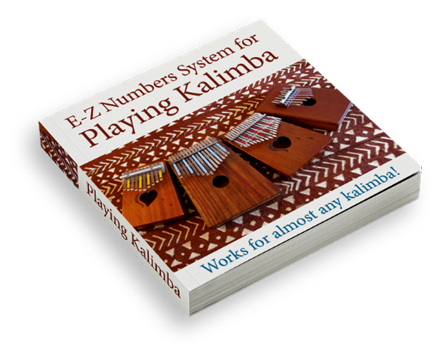
Sign up for our newsletter and free resources with your email address:
We pinky promise not to spam you and to only send good stuff.
 Assist Paul Tracey Rebuild His House in Pacific Palisades
Assist Paul Tracey Rebuild His House in Pacific Palisades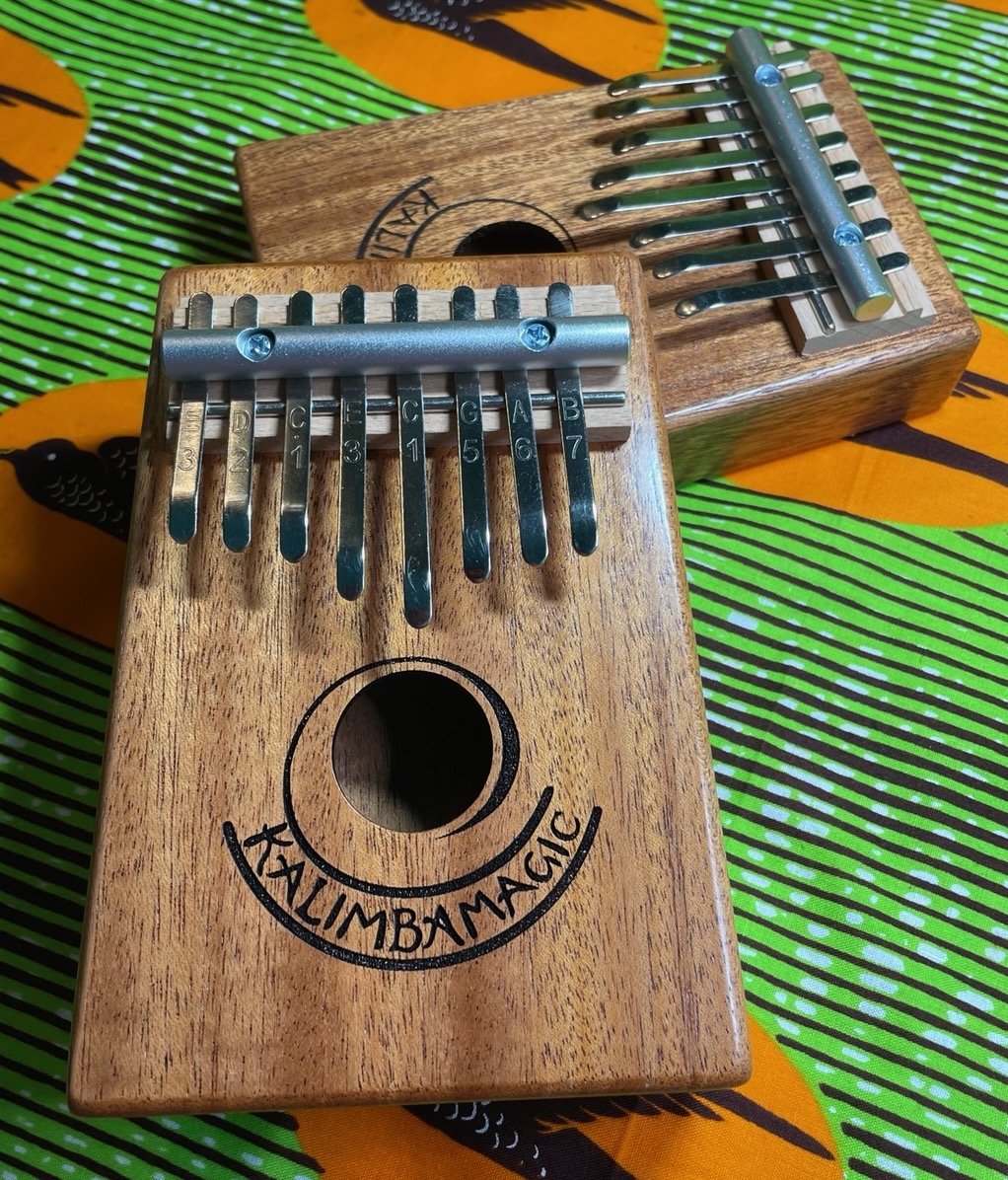 8-Note Spiral Kalimba Turned into a Student Karimba
8-Note Spiral Kalimba Turned into a Student Karimba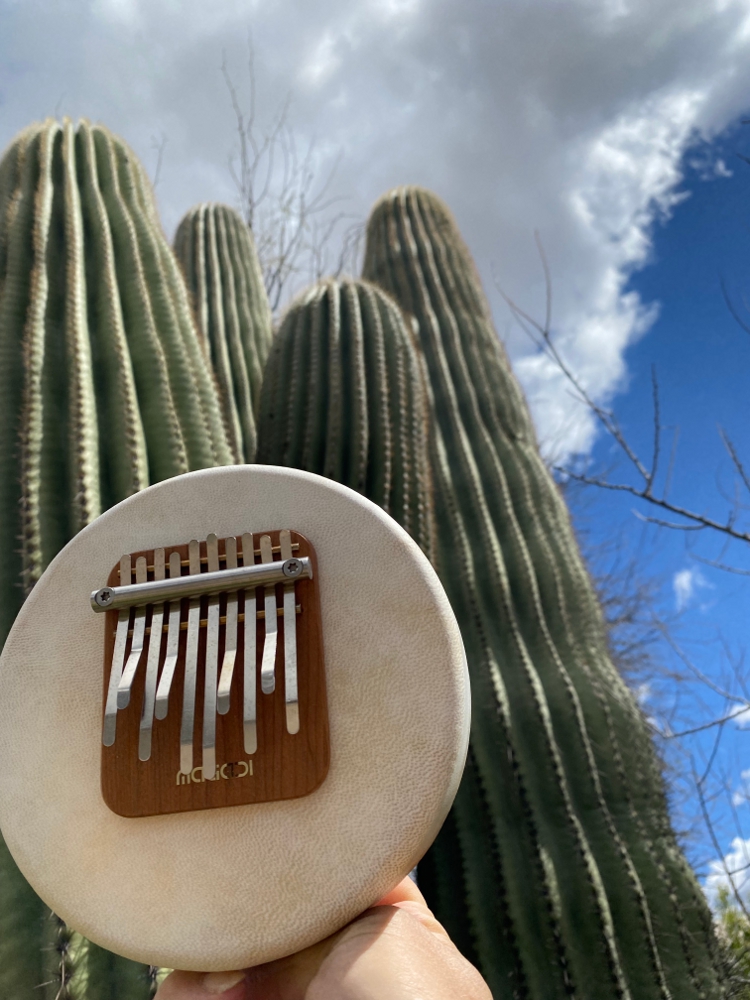 Seek to Infuse Your Musical Moments With Beauty and Magic
Seek to Infuse Your Musical Moments With Beauty and MagicUse of this website constitutes acceptance of the Privacy Policy and User Agreement. Copyright © 2020 Kalimba Magic. All Rights Reserved.